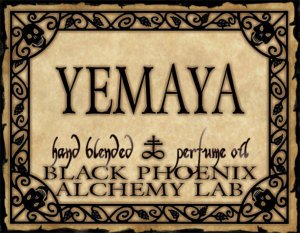Moody
-
Tiresias, The Androgyne Perfume Oil
Add to cartUpon the next stage, a spotlight is focused on a mammoth bronze sculpture of two snakes entwined. Their bodies are wrapped around each other in an intimate embrace, and their tongues touch suggestively. The deep, somber boom of a standing bass leads into a twelve-string guitar’s plaintive moan, and as the music swells, a stunning, statuesque woman steps out from behind the statue, her fierce and regal face in profile. The spotlight dims to a deep amber-red, and shines a dark, sanguine light onto her, tinting her long, wild hair the color of blood. She sings:
Sunday is gloomy, my hours are slumberless.
Dearest, the shadows I live with are numberless.
Little white flowers will never awaken you,
Not where the black coach of sorrow has taken you.
Angels have no thought of ever returning you.
Would they be angry if I thought of joining you?
Gloomy Sunday.She turns, and abruptly faces left. Her features are coarser, more masculine, and you notice the rough, dusky shadow of an evening beard on the singer’s face. On this side, the hair is cropped short, and as s/he sighs and begins the next verse, you hear the voice deepen to a weathered, sorrowful baritone.
Gloomy is Sunday; with shadows I spend it all.
My heart and I have decided to end it all.
Soon there’ll be candles and prayers that are sad, I know.
Death is no dream, for in death I’m caressing you.
With the last breath of my soul I’ll be blessing you.
Gloomy Sunday.The singer turns to face the audience, and your senses reel. On the left side, the features are sharp, but feminine. You can see the curve of her breast, the soft fullness of her hips, the arch of her fine brow. On the right, it is the body of an Adonis, muscular and commanding. You see that a thick seam runs down the center of the body, stitched roughly.
Though the vision is disconcerting, the warmth and passion in the singer’s voice swells inside your heart, and you are spellbound. Enraptured, you realize that though the gender is opposed on either side, one soul binds the whole.
Dark, moody, and bittersweet: black currant, patchouli, tobacco, cinnamon leaf, caramel, muguet, and red sandalwood.
-
Yemaya Perfume Oil
Select OptionsLady of the Ocean, Queen of Mothers, Mother of the Children of the Fishes. She is the River of Life, the ocean is her womb, and she is the mother of many of the Orishas. Yemaya shares the oceans with her lover / brother / son / brother-self, Olokun, and She governs the uppermost part of the waters where the sun’s rays mingle with Her waters to promote life and growth. Yemaya is everlasting, She is motherhood, the universal drive for the survival of a species, the procreative urge, the instinct of a mother protecting her young, and She is the governess of all life on Earth. She is the Most Fruitful of Women, and both She and Olokun are the protectors and benefactors of those who wish to conceive. Yemoya, being the mother of Shango, also has jurisdiction over rain and snow. She has seven roads and seven manifestations, all corresponding to the Seven Seas. She is the blood that pumps through our veins, and the sound of our blood rushing through our bodies is Her lullaby. She is in constant motion, never resting, ever vigilant and though she may seem calm on the surface, there is always activity within Her waters. The Great Mother possesses breathtaking beauty, patience and a gentle hand, yet She is also fearsome, temperamental, moody and stern. She nurtures her children, but She is also a disciplinarian. She is symbolized by the fish, mermaid, seagull, wharf rat, ibis, vulture and duck, and She shares the beauty of the peacock feather with Oshun. Her ofrenda is a bounty of melons and grapes, strewn with the petals of the flowers of motherhood, draped with sea mosses.

